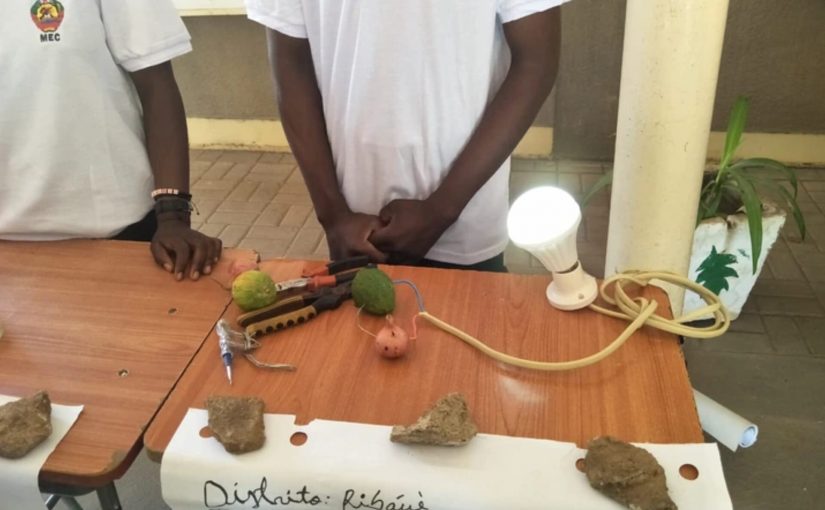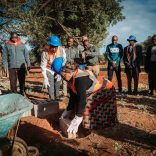Mozambique: Health Ministry confirms shortage of BCG vaccine
Mozambique: 11th grader Faifé overcomes power outages with lemon and onion in Ribáué

Photo: Ikweli
Tired of power cuts that prevented him from studying at night, Faife, an 11th-grade student in the Mozambican province of Nampula, decided to outsmart fate with a project to generate electricity using lemon and onion.
The 19-year-old decided not to be defeated by the power fluctuations and cuts that plague the neighbourhood where he lives in Ribáué, more than 140 kilometres from the provincial capital, Nampula, northern Mozambique, and put into practice what he learned in class.
“Power cuts happened almost every night, and this made it difficult to review the material or do homework. That’s when I thought, why not use what I learn at school to solve a real problem,” Faife da Costa, a student at Ribáué Secondary School, told Lusa with a shy smile.
Using only copper and aluminium wire, the young man built a simple circuit capable of generating electricity from the chemical reaction between the citric acid in the lemon and the substances present in the onion. The result was surprising: enough light to illuminate his room and allow him to continue studying.
This is an experiment also known as a homemade electrochemical battery that thus generates a small voltage, sufficient, for example, to power a small LED lamp.
Although this is a project that, at this initial stage, produces only limited energy, the student sees great potential ahead: “For now, my invention serves only to light the house. But I dream of improving the system so that it can also power small electrical devices, such as radios and mobile phone chargers.”
On the other hand, more than a personal solution, the young man also thinks about expanding the project to benefit communities that still live without electricity, especially in the most remote areas of the province.
“There are many places living in darkness. I would like my idea to help these people have light and improve their living conditions,” he said.
Meanwhile, the lack of resources and technical support has been one of the main obstacles. But even so, the young man promises to remain determined to turn his dream into reality.
“If I had support, I could test new materials, improve the system and even create a more durable and resistant prototype,” he said, adding: “I want to show that it does not take much to change something. Sometimes, it is enough to believe, try and not give up.”
Mozambique secured 434,289 new electricity connections in 2025 under the Energy for All Programme, which is allowing an annual growth of 7%, aiming for total coverage by 2030, the Government announced on Tuesday.
“With the implementation of the programme, the connection rate is now over 500,000, and for 2025, 434,289 new connections have already been achieved, corresponding to 72.4% of the annual target,” said Salim Valá, spokesperson for today’s Council of Ministers session, who is also Minister of Planning and Development.
The evolution of this coverage was analysed by the Council of Ministers, with Salim Valá explaining that the execution of the Energy for All Programme, launched in 2019, “ensured an average increase of about 7% in the access rate,” highlighting that before the initiative’s launch, the number of annual connections was less than 150,000.
The minister also stated that the programme’s goal is to achieve universal electricity coverage by the end of the decade: “The programme will increase access levels to 100% by 2030, ensuring that all Mozambicans have access to electricity.”
Mozambique intends to bring electricity to a further 600,000 homes this year, surpassing the 563,000 connections in 2024, according to Government forecasts.












Leave a Reply
Be the First to Comment!
You must be logged in to post a comment.
You must be logged in to post a comment.